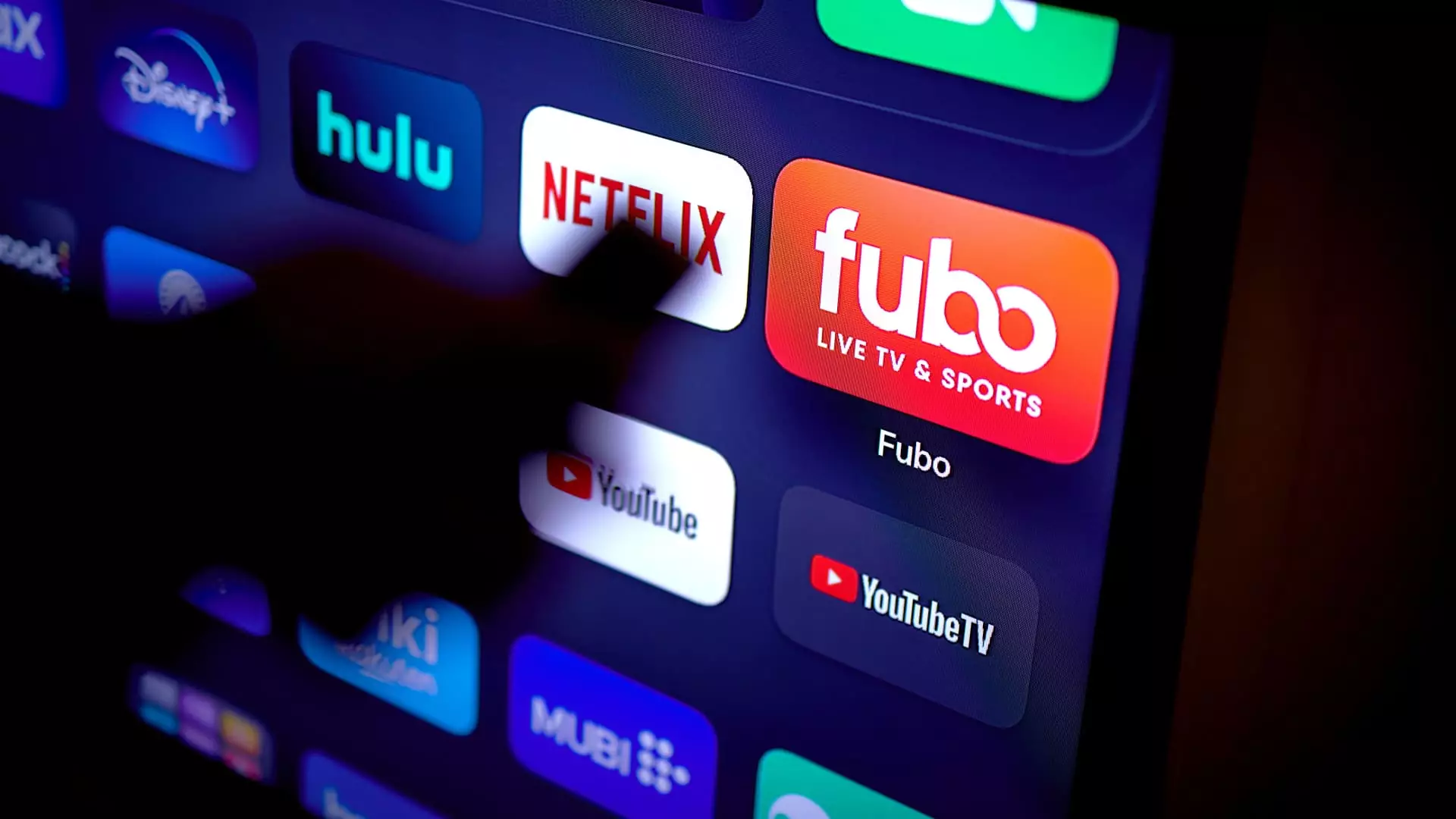In a groundbreaking move that reshapes the competitive landscape of streaming television, Disney has announced a merger of its Hulu+ Live TV service with FuboTV. This decision, made public on a recent Monday, not only signifies a comprehensive strategy aimed at enhancing the viewer experience but also positions Disney as the majority stakeholder in the new entity, with a 70% ownership share in what will continue to operate as Fubo. This merger comes at a time when the streaming industry is undergoing rapid transformation, challenging traditional cable models with more adaptable and varied viewing options.
The merger creates a combined subscriber base of 6.2 million users, a significant player in a marketplace that has become increasingly crowded. While both Hulu+ Live TV and FuboTV offer their own unique catalogues—Hulu excelling in original content and Fubo focusing on sports and news—this synthesis is intended to streamline operations and enhance prospects for growth. Despite the merger, both platforms will remain accessible individually, which offers consumers the flexibility and choice they have come to expect in the streaming world.
This decision to retain both platforms separately is an acknowledgment that while integration can yield operational efficiencies and synergies, the current television audience favors variety. As Fubo’s CEO, David Gandler, highlighted, uniting these services under one umbrella can lead to improved user retention, primarily through shared resources and offerings that target both sports enthusiasts and fans of more generalized entertainment.
The market’s reaction to this merger has been overwhelmingly positive. Fubo’s shares surged by an impressive 190% upon the announcement, illustrating investor confidence in the new direction the company is taking. This shift could indeed transform Fubo into a powerhouse in the streaming landscape. With Disney’s financial backing and broader resource network, the company is positioned to thrive as it embarks on this new phase of operations.
Gandler’s comments during the investor call reveal an acute awareness of the competitive pressures Fubo will now face—especially in the realm of sports broadcasting. Historically, Fubo has differentiated itself by offering regional sports networks, a unique selling point that may be leveraged further as part of a larger, more cohesive service. The merger aligns with broader industry trends that reflect consolidation aimed at countering fierce competition from other platforms like YouTube TV which offer similar bundles, yet lack Fubo’s depth in sports streaming.
Legal Hurdles and Future Prospects
The merger, however, was not without its legal intricacies. Fubo previously filed lawsuits against the prospective Venu service—an agreement formed between Disney, Fox, and Warner Bros. Discovery—that aimed to streamline sports broadcasting from these major corporations. Fubo argued that Venu threatened to create an anticompetitive market by controlling a significant percentage of sports rights—over 54%—in the U.S. The ruling in favor of Fubo temporarily blocked the launch of Venu, emphasizing the potential risks involved when leading media giants consolidate power in their respective markets.
The settlement reached between the parties now allows Disney and its partners to resume plans for Venu while providing a financial lifeline to Fubo through substantial cash payments and promises of future loans. This reconciliation indicates that collaborations, even among competitors, can pave the way for coexistence in an arena where consumer preferences are swiftly evolving.
As the merger between Disney and Fubo unfolds, it sets a precedent for future endeavors in the streaming sector where flexibility and user retention are pivotal components of success. Both companies stand poised to explore newfound opportunities in creating competitive, diversified offerings that cater to a growing and varied audience. The emphasis on maintaining independent platforms while aligning operational strengths reflects a recognition of the complexities inherent in the modern media landscape.
This deal epitomizes a transformative moment in television consumption, where traditional carriers face fierce competition from agile platforms that prioritize user choice and experience. With ongoing shifts in viewer habits, the importance of innovation and strategic planning has never been more pronounced. If executed successfully, this merger may well emerge not just as a significant business move for Disney and Fubo but also as a defining moment in the ongoing evolution of how content is both delivered and consumed.

